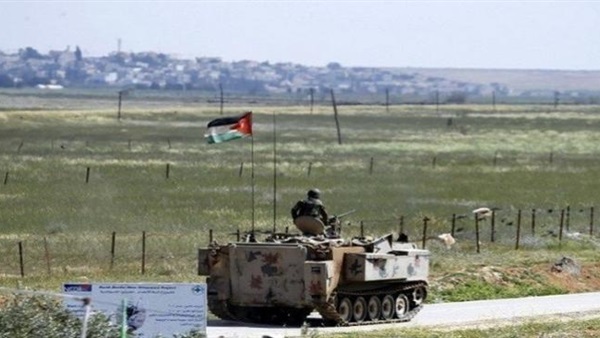Jordan ‘kills 27 drug smugglers’ on Syrian border

A clash on Jordan’s highly sensitive border with Syria today led to a pitched battle in which troops shot dead 27 armed men said to have been trying to infiltrate the country.
The Jordanian authorities said that the army had foiled a drug-smuggling attempt. Other largely unverified reports said that border guards had clashed with pro-Iranian forces operating inside Syria.
The two accounts are not incompatible. The Jordanian statement said that the smugglers “were supported by other armed groups”, while the Iran-backed Lebanon-based Shia militia Hezbollah is widely accused of masterminding the international trade in narcotics from the Middle East.
In particular, in concert with elements of the Syrian regime, it is said to control or be involved in the manufacture and smuggling of captagon, an amphetamine-based drug wildly popular across the region.
The Jordanian army keeps a tight grip on the long, largely desert border with Syria, particularly since the outbreak of the Syrian war. It also hosts more than a million Syrian refugees, many in camps near the border.
This month, two Jordanian soldiers including an army officer were killed in another clash with drug smugglers, though details of the incident were kept under wraps.
On this occasion, details were also unclear.
The army said that troops had come across a smuggling attempt on the border, which is blanketed in snow. “A military operation thwarted attempts to infiltrate and smuggle large quantities of narcotics from Syrian territory into Jordanian territory,” it said. “A preliminary search was conducted in the area, and large quantities of narcotics were found.”
Other smugglers fled back across the border, it said.
The scale of the encounter and number of deaths suggests that the incident involved more than just a random encounter with smugglers and that it was more likely a fully-fledged operation to break up a militia-supported smuggling ring. The army had promised a tough response after the two earlier deaths of its men.
Jordan, though a crucial member of the western alliance in the Middle East, has sought to improve relations with both Syria and Iran in the past two years, and may want to avoid exacerbating tensions by giving publicity to a major confrontation with Hezbollah.
It only recently reopened the main border crossing for trade with Syria, near the town of Ramtha.
Hezbollah regularly denies its involvement in the drugs trade, and Syria has recently announced a crackdown. The businessman once associated with the trade, Rami Makhlouf, is a cousin of President Assad but he has fallen out of favour in the past two years.
Nevertheless, a report for the European Union said that Syria exported captagon to the value of $3.46 billion in 2020, and Jordanian officials say that they believe that the smugglers at least work in coordination with border guards on the Syrian side.
The drugs are not all aimed at the Jordanian market. It is also a route for smuggling into Iraq, which also have borders with Jordan.





